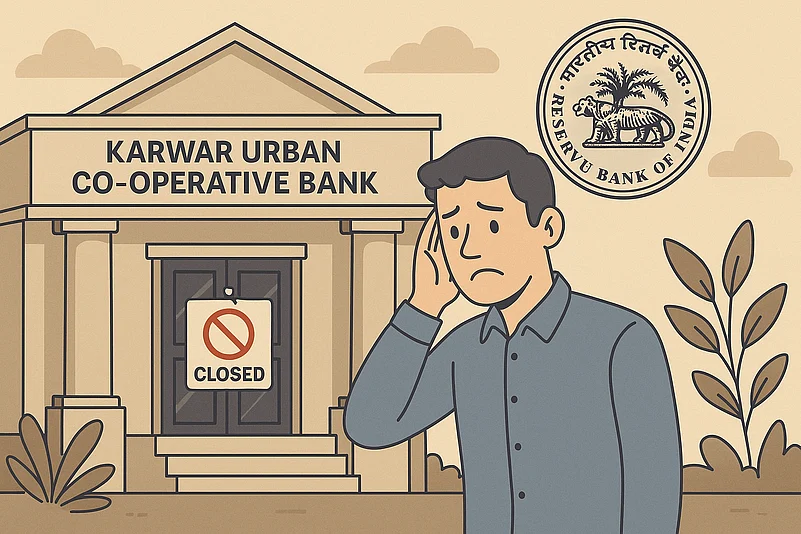The Reserve Bank of India (RBI) has revoked the banking licence of the Karwar Urban Co-operative Bank Ltd., Karwar. The order took effect from the close of business day on July 23, 2025. The RBI said the bank lacked adequate capital or earning potential to operate in a safe manner.
RBI stated that the bank had not abided by a number of conditions under the Banking Regulation Act, 1949. The central bank further stated that permitting the bank to operate would be prejudicial to the interests of the depositors and the public.
The Karnataka Registrar of Co-operative Societies has been directed to initiate the process of winding up the bank and to appoint a liquidator.
Depositors to Get Insurance Up to Rs 5 Lakh
Following the revocation of its licence, the bank is not allowed to accept or repay deposits. Yet, depositors are insured by the Deposit Insurance and Credit Guarantee Corporation (DICGC).
Every depositor is covered up to Rs 5 lakh for their deposits. As per RBI, nearly 92.9 percent of depositors of the Karwar Urban Co-operative Bank will receive the amount of their deposits under this cover of insurance.
As of June 30, 2025, DICGC has already reimbursed Rs 37.79 crore to eligible depositors who had agreed to settlements. Those settlements were made under Section 18A of the DICGC Act, 1961.
Customers Still Experience Delays and Confusion
Though the insurance can provide for most of the depositors, getting the money back for some customers may take time, especially those with deposits exceeding Rs 5 lakh. Liquidation does take its time, and customers will have to wait for notice.
Previous closures of co-operative banks have indicated that whilst insurance provides some assistance, the procedure itself can be protracted.
What Depositors Should Do Now
Depositors must remain in contact with the bank or the liquidator appointed to get an idea of what's next. Those having deposits up to Rs 5 lakh must see that their details are registered properly with the bank to settle without a hitch.
The RBI move underscores the need to scrutinise the health of small co-operative banks before creating or keeping large deposits with them. Clients are cautioned to diversify savings across institutions to reduce risks.











